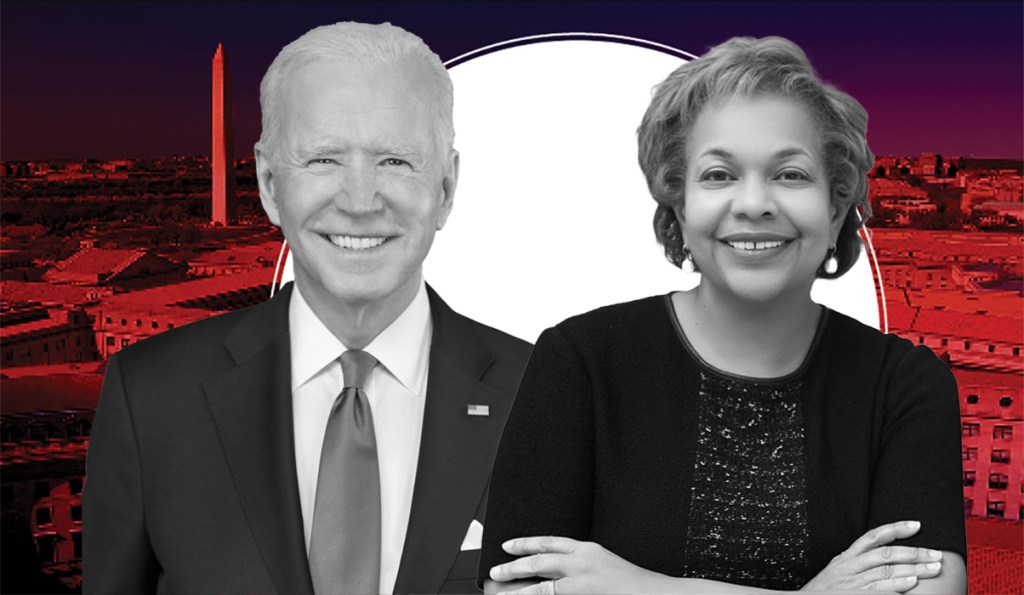
Less than a week before President Donald Trump was scheduled to leave office, Treasury Secretary Steve Mnuchin and Federal Housing Finance Agency Director Mark Calabria announced several controversial changes that infuriated the housing finance industry.
Mnuchin and Calabria amended the preferred stock purchase agreements that ultimately define Fannie Mae and Freddie Mac‘s mission. Though Mnuchin and Calabria allowed the government sponsored agencies to retain more capital, it came with strings. The January amendments restricted use of the cash window to a cap of $1.5 billion, introduced caps on the volume of mortgages Fannie and Freddie could purchase on investment properties and second homes to 7%, and, perhaps most controversially, capped the amount of “high-risk” loans that Fannie and Freddie could purchase to 6% of purchase mortgages and 3% for refinances.
The Mortgage Bankers Association wrote in a letter in March that several of the revised PSPA amendments could cause “unnecessary disruptions in the housing finance system,” and pleaded for more time in implementing some of the measures.
The Community Home Lenders Association appealed to the Biden administration’s interest in racial equity. The trade organization said in a letter that the restrictions “will have a disproportionate impact on minorities, low- and moderate-income, and other underserved borrowers – thus undermining the Administration’s focus on racial equity.”
Eight months later, the Biden administration has unwound much of Mnuchin and Calabria’s parting gift to the industry. Acting FHFA Director Sandra Thompson and Treasury Secretary Janet Yellen on Tuesday suspended many of the January amendments for 18 months, with a more comprehensive review to follow.
“This suspension will provide FHFA time to review the extent to which these requirements are redundant or inconsistent with existing FHFA standards, policies and directives that mandate sustainable lending standards,” Thompson said in a statement.
The suspension of the amendments “do not affect the enterprises’ ability to build or retain capital,” the Treasury said in a news release Tuesday, adding that they’re focused on creating more affordable housing in the country.
Housing finance industry groups applauded the Biden administration’s suspended the restrictions, which contributed to major losses for some lenders in the second quarter.
Mortgage originators were caught flat-footed by Mnuchin and Calabria’s amendments, which forced lenders to increase their use of mortgage-backed security swaps, sales of loans to correspondent aggregators, or shifting of their business mix to other loan products.
“The suspensions will eliminate several market and pricing disruptions caused by these caps that were harming lenders and borrowers alike and pave the way to restore appropriate regulatory authority to the FHFA,” said MBA President and CEO Bob Broeksmit in a statement. “MBA looks forward to working with Treasury, FHFA, and all other stakeholders on these and other ways to protect consumers and strengthen the mortgage market.”
The CHLA said it commended Thompson “in the strongest possible way” for eliminating the caps and reducing small lender cash window access. “This action is critical to enable Fannie Mae and Freddie Mac to fully carry out their mortgage access to credit role,” the trade group said.
David Dworkin, who heads the National Housing Conference, said that Calabria and Mnuchin’s actions on limiting loans with higher-risk characteristics were “unnecessary when they were instituted and only served to prevent credit-worthy homebuyers, disproportionately people of color, from becoming homeowners.”
Allowing the GSEs to purchase loans with higher risk characteristics wouldn’t lead to a repeat of the subprime mortgage crisis, he said. “The Financial Crisis Inquiry Commission report definitively stated that the subprime crisis was not caused by affordable housing loans made by Fannie Mae and Freddie Mac. Further, today, the Qualified Mortgage Rule protects consumers from toxic mortgage products. The proof of this is that mortgage performance is better today than at any time in the past 20 years…”
The suspensions represent the second major bone the Biden administration has thrown at the housing finance industry in recent months. Shortly after her appointment, Thompson agreed to end the Trump-era adverse market refinance fee, which added 50 basis points to most refinance applications under the guise that Fannie and Freddie needed to be recapitalized against COVID-19-related losses.




